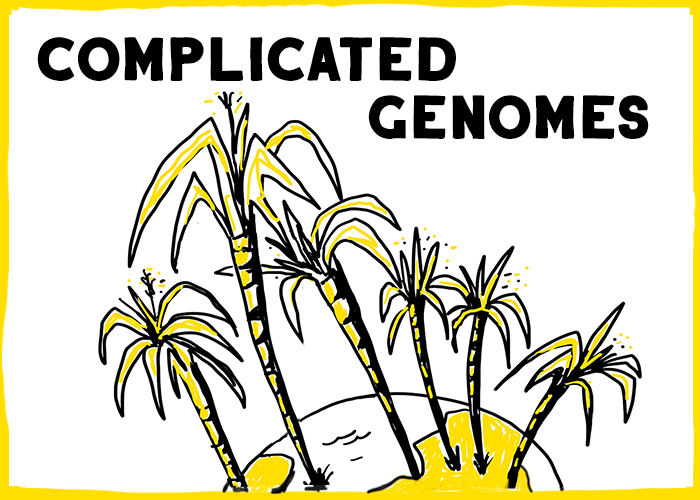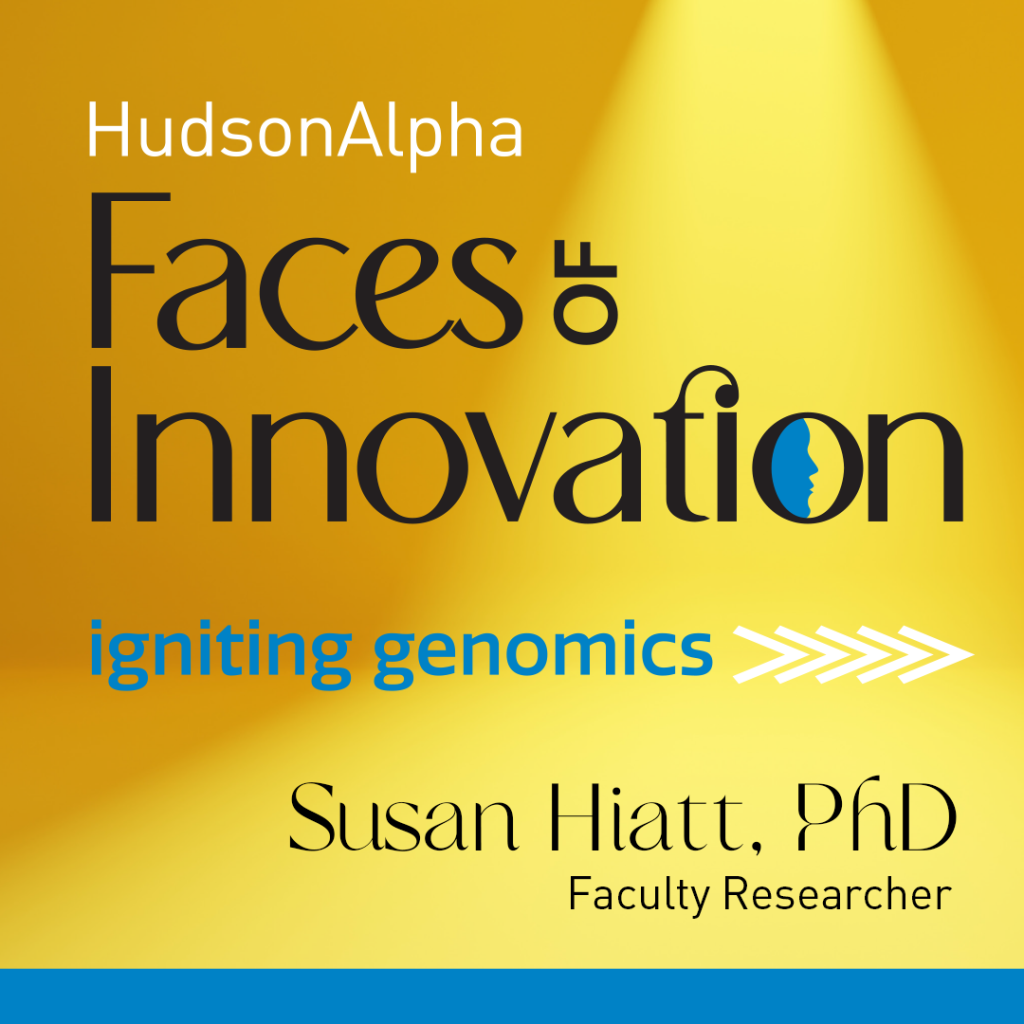HudsonAlpha welcomed Tie the Ribbons guests into the Jackson Center on Thursday, Nov. 6, 2014, to hear Educational Outreach leaders Kelly East and Neil Lamb, Ph.D., share the significance of ground-breaking genetic discoveries by Mary-Claire King, Ph.D.
In 1990, King demonstrated that a single gene on chromosome 17q21, which she named BRCA1, was responsible for inherited breast and ovarian cancer in many families.
The discussion, “Understanding the Work of Mary-Claire King,” provided background on King’s work through a question and answer session and scenes from the film “Decoding Annie Parker.”
King’s success began early in her career as a geneticist. As a graduate student, she published work showing the genetic similarities between humans and chimpanzees. When she started working at the University of California Berkeley in the 1970s, she asked the question, “Might breast cancer be inherited?”
“At that point in time, we knew that breast cancer affected an enormous number of women,” Lamb said. “But because we didn’t have a sense of what caused breast cancer, she stepped into an enormous amount of skepticism with her suggestion that perhaps breast cancer or a part of breast cancer had a strong genetic component.”
“Decoding Annie Parker” tells the story of King’s journey to discovery and her impact on human health. In the film, Annie Parker, played by actress Samantha Morton, is diagnosed with breast cancer at age 29. She had already lost her sister, mother and grandmother to breast cancer and could not help but wonder if there was something inside of her family that caused the illness.
“It is essentially the story of her grappling for a really long time with trying to understand what’s happening in her family,” East said. “Breast cancer is common, but there’s more breast cancer happening than what you would expect.”
King had to study groups of women with breast cancer and find relatives within that group that had breast cancer. It was because of the persistence and determination from individuals like Parker that King was able to hear their stories, study their families, and make history.
“Any of you ever been given a project that seemed absolutely impossible?” Lamb asked. “That was exactly how her lab felt.”
Thankfully, King and her team did not give up. Although it took 17 years of work, it is because of King that individuals at risk for developing breast cancer now have a sense of hope, knowing that something can be done.
“Understanding the Work of Dr. Mary-Claire King” was a precursor to HudsonAlpha’s annual Tie the Ribbons luncheon Nov. 17 at which King is the guest speaker. The event will celebrate the success of the Breakthrough Breast Cancer fund, which is raising funds to hire a cancer genomics researcher at HudsonAlpha, and will also recognize King with the 2014 HudsonAlpha Life Sciences Prize for career achievement.


